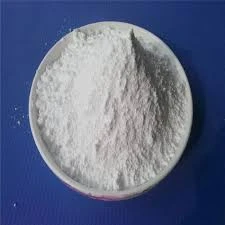The Role of Chemicals in Cooling Towers
Cooling towers are critical components in various industrial processes, providing essential cooling for systems ranging from power plants to HVAC systems. While their primary function is to transfer heat from water to the atmosphere, the overall efficiency and longevity of cooling towers heavily depend on the chemical treatments used in their operations. This article explores the types of chemicals employed in cooling towers, their purposes, and the importance of proper management in maintaining optimal performance.
Chemicals Used in Cooling Towers
1. Biocides One of the primary challenges in cooling tower operations is the growth of biofilms and algae, which can inhibit heat exchange efficiency and lead to corrosion. Biocides, such as bromine and chlorine-based compounds, are often employed to control microbial growth. They ensure that the system remains clean, preventing fouling that could diminish performance and increase energy consumption.
2. Corrosion Inhibitors Metals such as steel and copper, commonly used in cooling tower systems, are vulnerable to corrosion due to their exposure to water and air. Corrosion inhibitors, like phosphates and molybdates, are added to the cooling water to create a protective layer on the metal surfaces. This layer mitigates the electrochemical reactions that lead to rusting and degradation, helping to extend the lifespan of cooling tower components.
3. Scale Inhibitors The evaporation of water in cooling towers can lead to the concentration of minerals such as calcium and magnesium, resulting in scale formation. Scale deposits can obstruct water flow and heat transfer efficiency. Chemicals like polyphosphates and polymers are used as scale inhibitors, preventing the precipitation of these minerals and ensuring smooth operation of the cooling system.
chemical used in cooling tower

4. pH Adjusters The pH level of the cooling water is crucial for optimizing the performance of biocides and corrosion inhibitors. Chemicals such as sodium hydroxide or sulfuric acid may be added to adjust the pH to a neutral level. Maintaining a balanced pH not only enhances the effectiveness of other chemicals but also prevents chemical imbalances that could lead to other operational problems.
Importance of Chemical Management
Effective chemical management is vital for the health and efficiency of cooling towers. Regular monitoring and precise dosing of chemicals are necessary to maintain optimal water quality and ensure that all processes function smoothly. Over-treatment or under-treatment can lead to adverse effects, including system efficiency loss, increased operational costs, and, ultimately, equipment failure.
Additionally, regulatory compliance is an essential aspect of chemical management. Many countries have specific regulations governing the discharge of chemicals into the environment. Adhering to these regulations is not only vital for environmental protection but also shields companies from legal liabilities.
Conclusion
In conclusion, the use of chemicals in cooling towers plays a pivotal role in maintaining system efficiency and longevity. With a comprehensive understanding of the chemicals involved and their specific functions—be it biocides, corrosion inhibitors, scale inhibitors, or pH adjusters—industrial facilities can ensure optimal cooling performance while complying with environmental regulations. As technology advances, the development of even more effective and environmentally friendly chemical treatments will further enhance the sustainability of cooling processes, ensuring that cooling towers continue to operate at peak efficiency.

